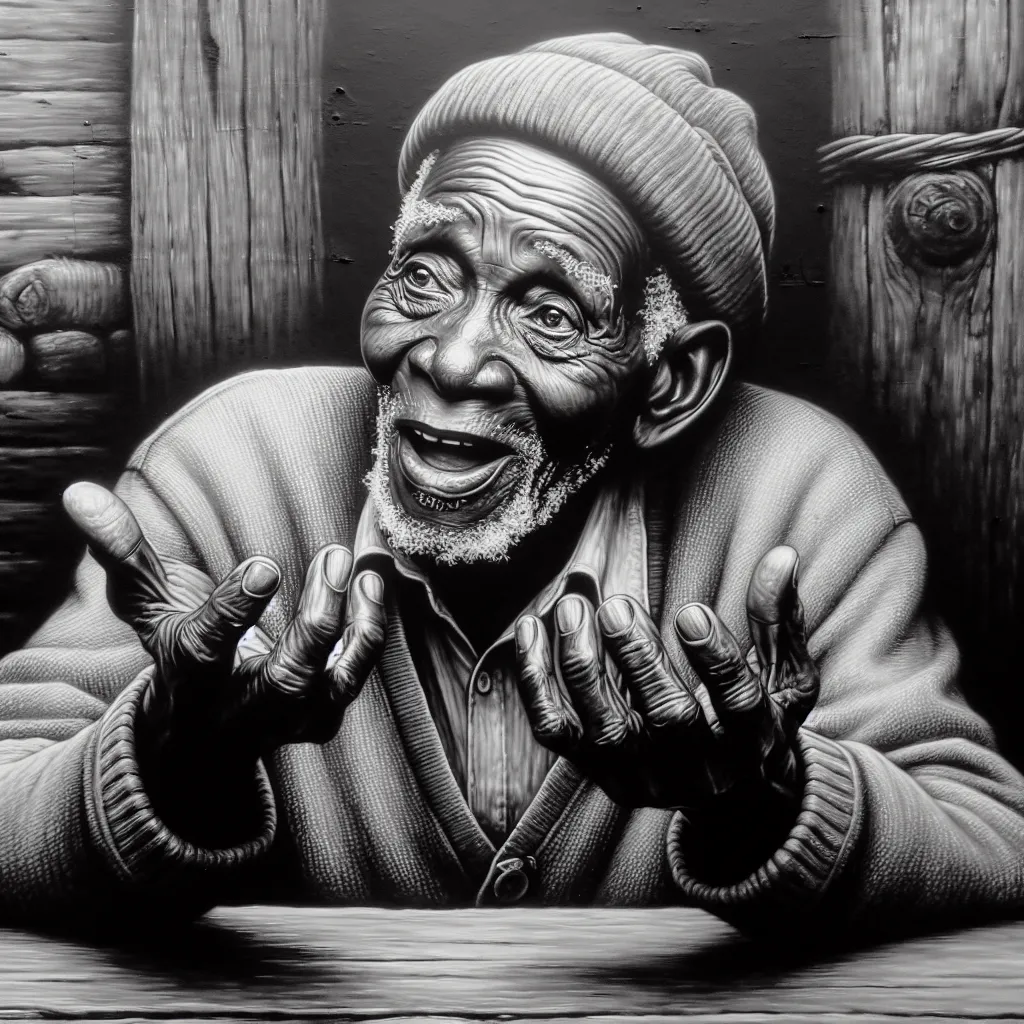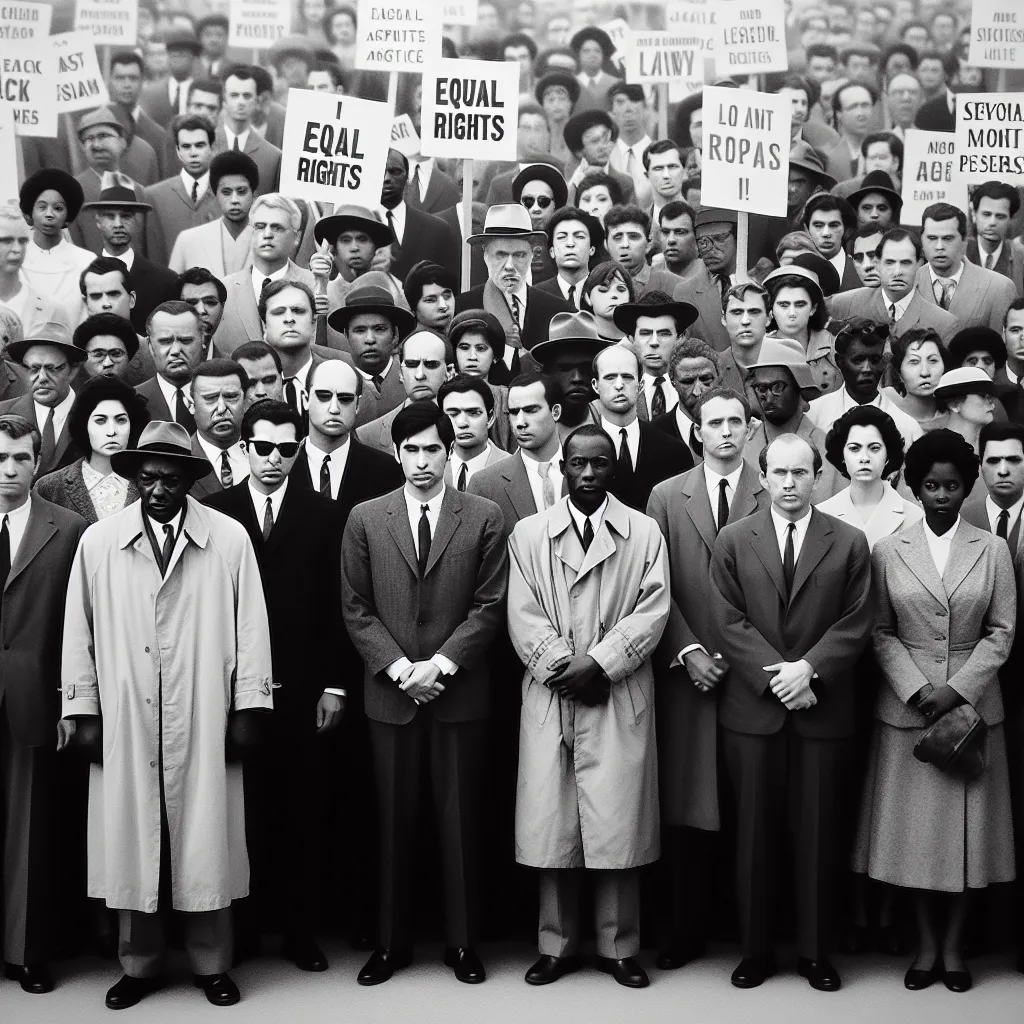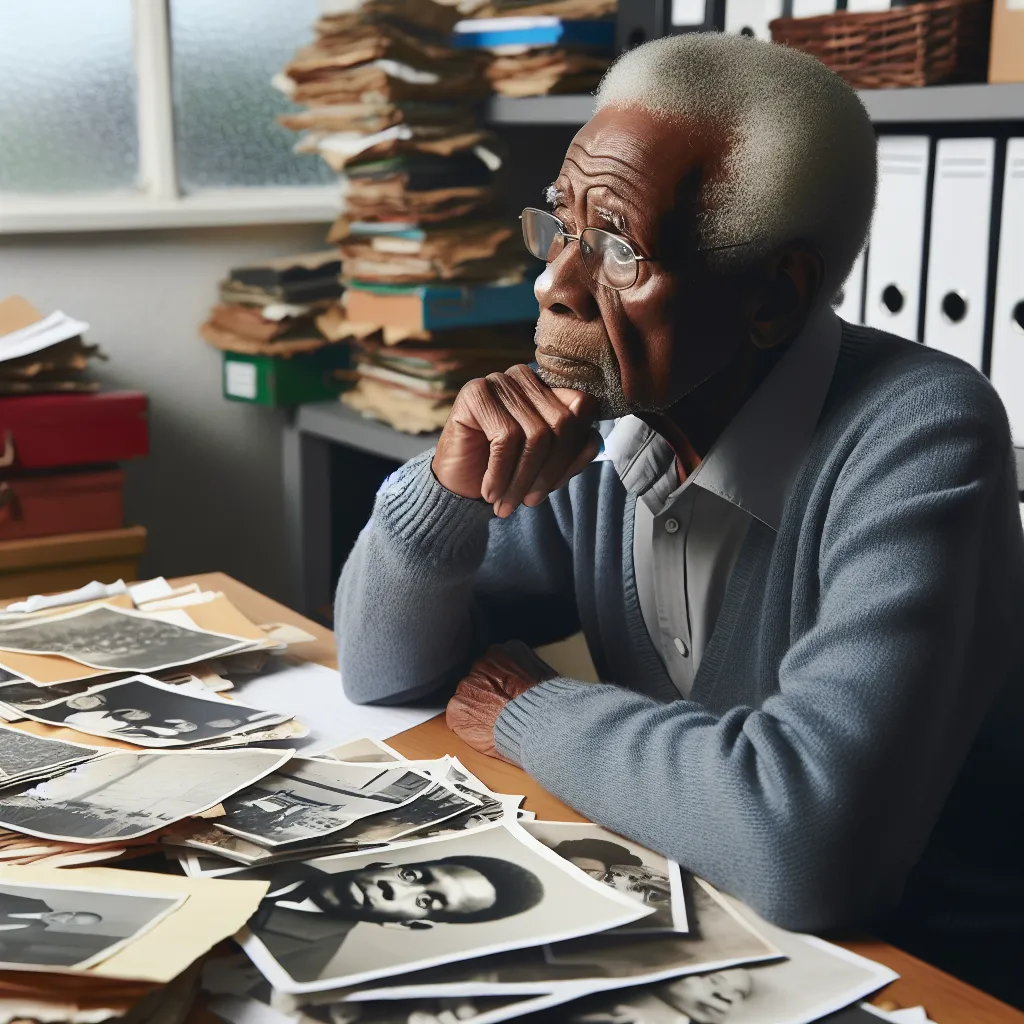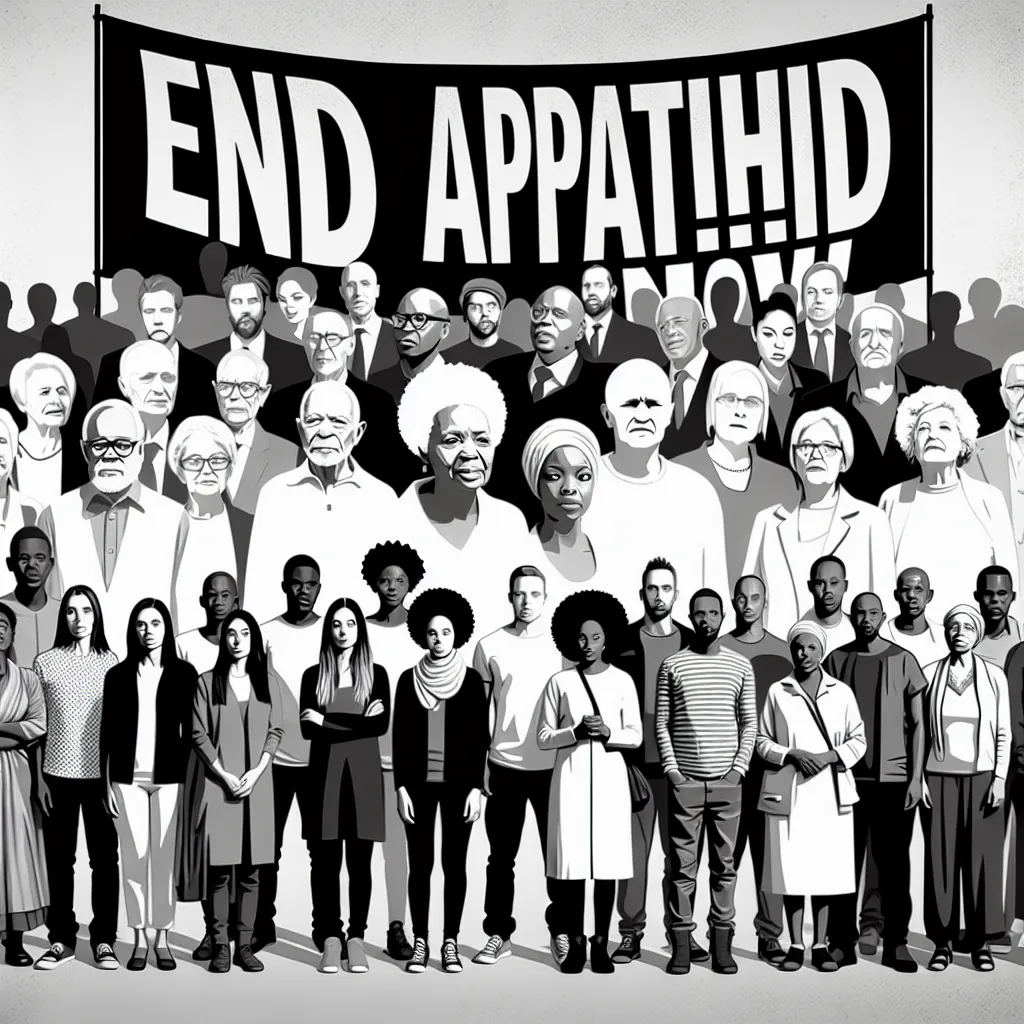Ask AI on The Internet
Question: Marks: 50 Key Question: How did apartheid affect people’s lives and how did they respond? The project consists of two parts: • A written research task on one apartheid law • An oral history task in which you interview a person. Written research 1. Decide which apartheid law you are going to research [for example: Population Registration Act; Group Areas Act; Bantu Education Act; Mixed Marriages Act, Separate Amenities Act or the Pass Laws]. 2. Make use of reliable internet sites/books to research your law. 3. Write down the details of where you found your information for your bibliography. Research Essay: Introduction: State which law you have researched and the reason why you chose this issue. Body of evidence: a) When was the law passed or implemented? Why was the law passed? b) What changed were put in place after the law was implemented? c) What attitudes did people have towards the law? Conclusion: Why do you think this law or issue is interesting or important to know about today? Write a bibliography: 1) Title of Article: ____________________________________________________ Title of Website:___________________________________________________ Author: ________________________________________ Date of Publication: ________________________________________________ Date Accessed: ________________________________________ Publisher: _______________________________________ Page Numbers Used (If applicable): __________________ 2) Title of Article: ____________________________________________________ Title of Website:___________________________________________________ Author: ________________________________________ Date of Publication: ________________________________________________ Date Accessed: ________________________________________ Publisher: _______________________________________ Page Numbers Used (If applicable): __________________ Oral History Interview: Find out more about the law you researched from someone whose life was affected by it. Briefly explain why you chose this person. Ask the interviewee the following questions. Write down short answers. 1)When were you born? 2)Where did you grow up? 3) How did this law (e.g. Separate Amenities Act) affect you? 4) How did you respond to this law? 5) Why did you choose to respond in this manner? 6) How do you feel now that this law (Separate Amenities Act) in so longer a law in South Africa? Using the information, you gathered from your research and the interview, write an essay about the person who was interviewed. Focus on how he/she was affected by the law or issue and how he/she responded to it. Comment on your own reflections on the experience of doing the project. [What was interesting? How has it made you rethink your own views?] Your project will be marked according to this rubric: Level 7 Outstanding Level 6 Meritorious Level 5 Substantial Level 4 Adequate Level 3 Moderate Level 2 Elementary Level 1 Not Achieved Articulate, insightful, well expressed, accurate and appropriate content Well expressed, clear; accurate and appropriate content Good expression; clear; could have more content; good understanding Some errors in expression; some good content; but little understanding Errors in expression; could have more content; not much understanding Poor expression; content inadequate; No understanding of the issues; some areas incomplete Incomplete; no understanding shown; poor or inaccurate expression and content Research essay (20) 20-16 15-14 13-12 11-10 9-8 7-6 5-0 Bibliography (3) 3 2 1 0 Person chosen (3) 3 2 1 0 Essay about the person you interviewed (20) 20-16 15-14 13-12 11-10 9-8 7-6 5-0 Self -reflection (4) 4-3 2 1 0 Total: ______/50
Great to see that you're working on your project about apartheid laws! I'll help you structure your research and oral history tasks. Let's break it down step-by-step. ### Written Research Task 1. **Choosing an Apartheid Law:** - **Selection Example: Group Areas Act** - **Reason for Choice:** - I chose the Group Areas Act because it had a profound impact on the geographical and social landscape of South Africa, forcibly segregating communities and reshaping cities. #### Research Essay **Introduction:** - **Selected Law:** Group Areas Act - **Reason for Choice:** This law starkly illustrates the systemic nature of apartheid, as it physically separated racial groups into designated residential and business areas, shaping the country's cities and deeply affecting its people. **Body of Evidence:** a) **When was the law passed or implemented? Why was the law passed?** - **Implementation Date:** The Group Areas Act was passed in 1950. - **Reason for Passage:** The law was intended to enforce racial segregation in all areas of life by designating separate residential and business zones for different racial groups, thereby reinforcing the National Party's policies of apartheid and control over the non-white population. b) **What changes were put in place after the law was implemented?** - Areas were demarcated exclusively for different racial groups. - Forced removals of non-white people from areas declared 'white'. - Development of townships and homelands for non-white populations away from city centers. - Economic and social activities became restricted and localized according to racial groupings. c) **What attitudes did people have towards the law?** - **White Population:** Largely supportive or indifferent, benefited from spatial and economic privileges. - **Non-White Population:** Strongly opposed the law, leading to feelings of displacement, anger, protests, and community upheaval. - **International Community:** Increasing condemnation and criticism led to mounting pressure on the South African government. **Conclusion:** - **Importance Today:** Understanding the Group Areas Act is crucial as it highlights the deliberate, legislative roots of racial inequality in South Africa. It is a stark reminder of the impact of discriminatory laws on people's lives and the importance of ensuring such injustices are never repeated. **Bibliography:** 1) **Title of Article:** The Group Areas Act - **Title of Website:** South African History Online - **Author:** Unavailable - **Date of Publication:** Unavailable - **Date Accessed:** [Insert Date] - **Publisher:** South African History Online - **Page Numbers Used:** Not applicable 2) **Title of Article:** Apartheid Legislation in South Africa - **Title of Website:** The O'Malley Archives - **Author:** Padraig O'Malley - **Date of Publication:** 1997 - **Date Accessed:** [Insert Date] - **Publisher:** Nelson Mandela Centre of Memory - **Page Numbers Used:** Not applicable ### Oral History Interview: **Choosing the Interviewee:** - **Chosen Person:** A family member or community elder who lived in an area affected by the Group Areas Act and experienced forced relocation. - **Reason for Choice:** Their firsthand experiences provide valuable insights into the emotional and social impact of the law. **Interview Questions and Short Answers:** 1) **When were you born?** - Interviewee's Response: [Insert Response] 2) **Where did you grow up?** - Interviewee's Response: [Insert Response] 3) **How did this law (Group Areas Act) affect you?** - Interviewee's Response: [Insert Response] 4) **How did you respond to this law?** - Interviewee's Response: [Insert Response] 5) **Why did you choose to respond in this manner?** - Interviewee's Response: [Insert Response] 6) **How do you feel now that this law (Group Areas Act) is no longer a law in South Africa?** - Interviewee's Response: [Insert Response] ### Essay About the Interviewee: Focus on recounting personal stories, emphasizing the emotional and social impacts of the Group Areas Act. Highlight their responses, resilience, and reflections on the changes post-apartheid. **Title: Surviving the Group Areas Act** **Introduction:** - Introduce the interviewee briefly, highlighting their connection to the Group Areas Act. **Body:** - **Pre-Law Life:** Describe their life before the Group Areas Act. - **Impact of Law:** Detail how the law disrupted their life, the forced removals, and loss of community. - **Response to Law:** Explain the interviewee's actions in response, whether it was resilience, protest, or survival strategies. - **Current Reflections:** Share their feelings and reflections on the law's abolition and its impact on present-day South Africa. **Conclusion:** - Summarize key points and reflect on the importance of remembering such personal histories. ### Self-Reflection: **Reflection on the Project:** - Discuss the emotional impact of hearing personal stories. - Reflect on any changes in your perception of apartheid after doing the research and interview. - Consider the importance of remembering and learning from history to prevent future injustices. This structure will ensure that you cover all the essential aspects of your project systematically. Good luck with your research and interviews!
Think your answer is better than the AI's? Post it below.
Question Tags
If you want your question answered by an AI, click here.







Post your own comment: